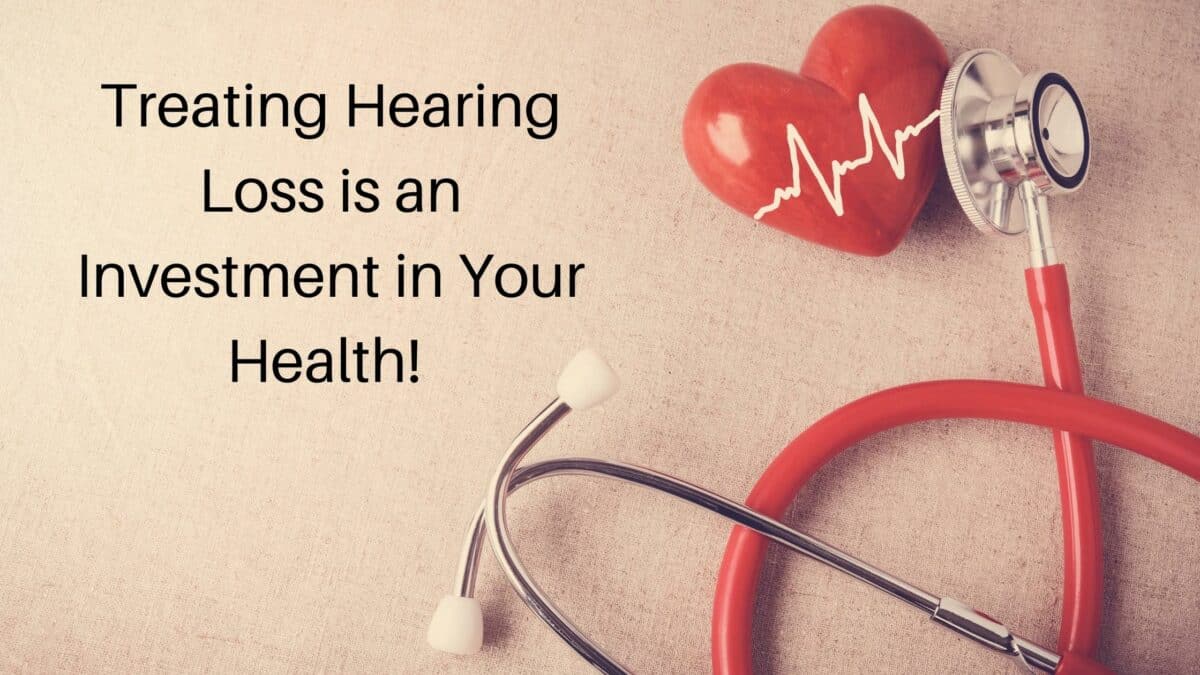There are plenty of reasons to seek treatment for your hearing loss. Study after study confirms that untreated hearing loss can wreak havoc on our social lives, partnerships, in our families, on our mental states, and more. It’s no surprise that untreated hearing loss can also cause problems with our overall health.
Hearing Loss: Losing Our Sense of Our Environment
Untreated hearing loss has a way of whittling down our confidence and sense of possibility. When we can’t hear, we’re more prone to paranoia and social isolation. It’s easy to take for granted just how much our ears help us feel safe. Our ears pick up on all kinds of environmental sounds that help our brains to understand our environments. The sonic landscape contributes to our sense that everything is okay, or that something is wrong. When we can’t hear, we can never be sure about what’s happening around us.
This state of affairs causes problems in two ways. First, it makes us less eager to get out and about. Those who live with untreated hearing loss tend to get less physical exercise than those with normal hearing or who wear hearing aids. Physical activity is a major contributor to our health and well-being, whether we’re taking a walk down the street, getting outside to work in the garden, or going for a bike ride. The more sedentary our lifestyle, the worse for our bodies and our brains. Indeed, lack of physical activity has also been linked to an earlier onset of cognitive decline and dementia (as has hearing loss, itself).
Second, the anxiety we experience from feeling disoriented can be a problem in itself. Anxiety or stress experienced over time causes inflammation in the body, which can also lead to a decline in health. If we’re also socially isolated while in this state—a common consequence of untreated hearing loss—the loneliness we experience can also contribute to declining physical health. Researchers have linked loneliness to health problems on the same level as those caused by smoking 15 cigarettes per day!
Those who treat hearing loss with hearing aids tend to get more physical exercise, feel less paranoid, and have better overall health than those who live with untreated hearing loss.
Hearing Loss and Alzheimer’s
The World Health Organization has ranked hearing loss as the #1 modifiable risk factor in the development of Alzheimer’s disease and dementia. Among 12 total identified factors, untreated hearing loss is the most significant. The risk of developing Alzheimer’s increases with the severity of the hearing loss:
- Mild hearing loss – twice as likely
- Moderate hearing loss – three times as likely
- Severe hearing loss – five times as likely
It’s not exactly clear why hearing loss promotes cognitive decline, though the statistics are very strong. Fortunately, by using hearing aids, the risk can be minimized.
Hearing Loss and the Hospital
Recent studies have shown that those with untreated hearing loss are 33% more likely to be readmitted to the hospital within one month after discharge than those who do not have trouble hearing, whether they wear hearing aids or have normal hearing.
The fast-paced, busy hospital environment likely makes it more difficult for patients with hearing loss to understand what their doctors and other caregivers are saying, which in turn decreases the quality of care. When we can’t communicate effectively, we can’t get effective treatment.
While some hospitals are starting to use personal amplifiers for patients who show signs of untreated hearing loss, the best practice is to treat your hearing loss with hearing aids and be prepared when emergent situations arise.
Regular Hearing Tests
The Better Hearing Institute, a non-profit organization, recommends getting a hearing test once every decade until age 50, and once every three years thereafter. Regular hearing tests allow hearing loss to be identified as early as possible, so treatment can begin on schedule and the unfortunate outcomes of untreated hearing loss can be avoided. Even living with hearing loss for a few years can effectively “re-wire” the brain to make it more difficult to adjust to wearing hearing aids later on. Many people “forget” how to listen!
Hearing Loss and Cardiovascular Health
Another advantage to getting regular hearing tests is that they could save your life! Sometimes, a hearing loss that progresses faster than normal can indicate an underlying cardiovascular condition that has not yet become acute. By identifying a fast-moving hearing loss, a hearing care professional can refer you to the proper specialists to explore whether an underlying cardiovascular condition could be the cause, and stop the problem before it results in a heart attack or other life-threatening condition.
If you or a loved one is living with untreated hearing loss, make an appointment for a hearing test today. And remember: Hearing health is health!

